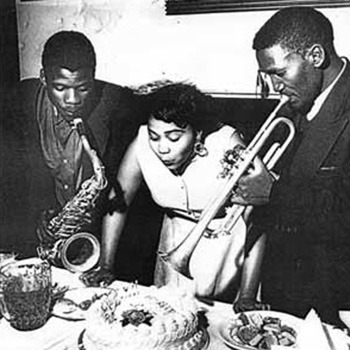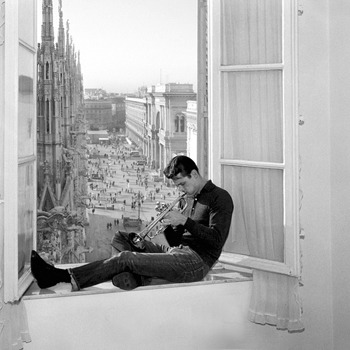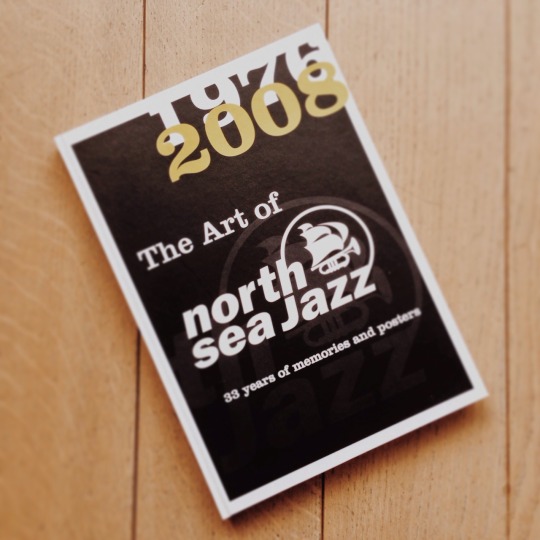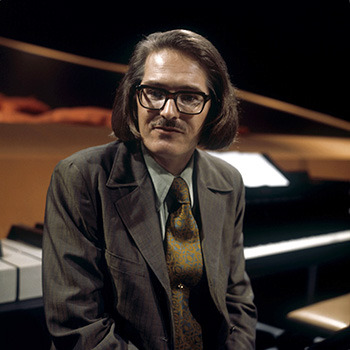Audio
WARNING! DANGEROUS SONG!
Listening to this song could cause serious health problems.
Today's song, 'Gloomy Sunday', (performed by Billie Holiday) is a song composed by Hungarian pianist and composer Rezső Seress (after his girlfriend left him) and published in 1933, as 'Vége A Világnak' ('End Of The World').
Delighted that he had finally written a hit, Seress contacted the ex-girlfriend who inspired the song and attempted to get back together with her. The next day, she killed herself by swallowing poison, leaving behind a note with just two words written on it: 'Gloomy Sunday'.
As time went on, 'Gloomy Sunday' was connected to a rash of suicides in Hungary. In all, seventeen people died. Two people shot themselves while listening to a band playing the tune. Several others drowned themselves in a river while clutching the sheet music of 'Gloomy Sunday'. People began to refer to it as 'The Suicide Song' and there were rumors that it was cursed. The Hungarian authorities banned the song from being played in public. However, this did not stop the rash of suicides.
In Berlin, a young shopkeeper hung herself. Beneath her feet, they found a copy of 'Gloomy Sunday'. In New York, a pretty secretary gassed herself, leaving behind her a request that 'Gloomy Sunday' be played at her funeral. In Vienna, a teenage girl drowned herself while clutching the sheet music. In Budapest, a shopkeeper killed himself and left a note containing the lyrics of the song. In London, a woman took an overdose of pills while listening to the record over and over. The song's eerie reputation quickly spread around the world and music publishers from America decided to cash in on its notoriety. They released an English translation of the song and it soon caught on. More deaths followed.
'Sunday is gloomy,
My hours are slumberless
Dearest the shadows
I live with are numberless
Little white flowers
Will never awaken you
Not where the black coach of
Sorrow has taken you
Angels have no thought
Of ever returning you
Would they be angry
If I thought of joining you?
Gloomy Sunday...'
Even the song's composer could not escape the curse. Seress was haunted by the all the death and destruction his music had caused, saying: "I stand in the midst of this deadly success as an accused man. This fatal fame hurts me. I cried all of the disappointments of my heart into this song, and it seems that others with feelings like mine have found their own hurt in it.” In 1968, he committed suicide by jumping out the window of his Budapest apartment building and falling to his death.
127 notes
·
View notes
Photo

jazz (& scrap) pages turned 3 today!
I hope it was a great year for you all, and I look forward to the next.
All the best,
Rick (jazzpages)
20 notes
·
View notes
Audio
Bill Evans - N.Y.C.’s No Lark
‘Conversations With Myself' was Bill's first solo album for Verve Records after being released from his contract by Riverside Records. Recorded at three different studio sessions on February 6th, 9th, and 20th 1963, Evans used the, then controversial, method of overdubbing three different yet corresponding piano tracks for each song.
The album would earn Evans his first Grammy Award in 1964 for Best Jazz Instrumental Album, Individual or Group.
Gene Lees remembers:
"We were both nominated for Grammy awards that year, Bill for 'Conversations With Myself' and I for Best Album Notes (for the Stan Getz & João Gilberto album). He had nothing appropriate to wear to the banquet. As it happened, I was storing a closet full of clothes for Woody Herman, one of the dapper dressers in the history of the business. There was a particularly well-made blue blazer which, to Bill’s surprise and mine, fit him perfectly. So he donned it. Just before we were to leave, I turned somehow and spilled a drink in his lap. Fortunately there was another pair of slacks that fit him. We picked up Helen and went to the banquet. And I managed to repeat the trick: I turned and spilled another drink in his lap. He said, “Man, are you trying to tell me something?” At that moment, they called his name. Bill picked up his Grammy for Conversations very wet”.
‘N.Y.C.’s No Lark' was a tribute to his pianist friend, Sonny Clark, who had died on January 13th of that year, 1963. It's a brooding piece, with the climax expressing how Evans felt.
By the way: ‘N.Y.C.’s No Lark' is an anagram…
164 notes
·
View notes
Text
Posting again
Hello jazzpagers,
It's been a while, because I was occupied by my other musical hobby, punk and post-punk.
This week I will start with jazzpages again.
I hope you're all still here.
Rick
17 notes
·
View notes
Text
All videos gone
Dear jazzpagers,
Due to my 2nd YouTube warning I had to delete all my uploaded videos.
I'm sorry about that, but there's nothing I can do.
All the best,
Rick
7 notes
·
View notes
Quote
You can be up to your boobies in white satin, with gardenias in your hair and no sugar cane for miles, but you can still be working on a plantation.
Billie Holiday
127 notes
·
View notes
Photo

Chet Baker, Milan
I will be spending the next month in Italy.
Have a good summer and I'll see you all again in August.
All the best,
Rick (jazzpages)
145 notes
·
View notes
Audio
Freddie Hubbard - Gypsy Blue
Todays song 'Gypsy Blue' can be found on Freddie's debut (as a leader) album 'Open Sesame', recorded at Van Gelder's studio on June 19th, 1960. The recordings were done in one (1) day, mind you. Which was common practice these days, but still...
The real star of 'Gypsy Blue' is Tina Brooks, who also wrote the song. Freddie Hubbard said about him: "...Ike Quebec introduced me to Tina at the 845 Club. Ike also introduced me to Alfred Lion. I loved Tina. He had a nice feeling. I got into him before I got into Hank (Mobley). He would write shit out on the spot and it would be beautiful. He wrote Gypsy Blue for me on the first record and I loved it. I just loved it. Tina made my first record date wonderful. He wrote and played beautifully. What a soulful, inspiring cat. I loved him..."
Alas, Brooks did not record after 1961. Plagued by heroin dependency and a gradually deteriorating health, he died of liver failure aged just 42, in 1974.
Freddie Hubbard - Trumpet
Tina Brooks - Tenor Saxophone
McCoy Tyner - Piano
Sam Jones - Bass
Clifford Jarvis - Drums
185 notes
·
View notes
Quote
Jazz is not background music. You must concentrate upon it in order to get the most of it. You must absorb most of it. The harmonies within the music can relax, soothe and uplift the mind when you concentrate upon and absorb it. Jazz music stimulates the minds and uplifts the souls of those who play it was well as of those who listen to immerse themselves in it. As the mind is stimulated and the soul uplifted, this is eventually reflected in the body.
Horace Silver
1K notes
·
View notes
Quote
I’m into scales right now...
John Coltrane
110 notes
·
View notes
Audio
Chico Hamilton Quartet feat. Eric Dolphy - Theme For A Starlet
A sweet little song from Chico Hamilton's obscure album 'Truth', recorded in 1959.
This album features an early incarnation of Chico Hamilton’s band featuring a then unknown Eric Dolphy. Utilizing cello and guitar in the front line along with Dolphy’s multiple instrumental talents lends an unusual air to the recorded material. Recorded just before Dolphy’s Prestige debut as a leader ('Outward Bound', 1960), one can hear his sound already fully formed. In addition to Gershman’s cello stylings, there is an ambience of familiarity for those who’ve admired Dolphy’s recordings with Ron Carter. Nowhere near as challenging as Dolphy’s later recordings, this Hamilton led date is still a joy to hear, and this short but sweet song is a welcome discovery and a boon to Dolphy collectors.
Dennis Budimir - Guitar
Nathan Gershman - Cello
Wyatt Ruther, Ralph Peña - Bass
Eric Dolphy - Reeds
Chico Hamilton - Drums
123 notes
·
View notes
Quote
Talking about music is like dancing about architecture.
Thelonious Monk
165 notes
·
View notes
Quote
It isn't where you came from, it's where you're going that counts.
Ella Fitzgerald
102 notes
·
View notes
Audio
Brad Mehldau - Paranoid Android
After attending an intimate concert by the Brad Mehldau Trio at LantarenVenster last Tuesday (March 7th), I thought it was time for another post about this great, innovative pianist and composer.
They started the concert with a 'Hey Joe' cover: not my personal favorite, but a great way for the not-so-trained-jazz listener to discover what makes a well known piece 'jazz'.
Brad Mehldau is known for turning popular tunes into jazz, as you can also hear in today's song 'Paranoid Andriod' (Radiohead) from 'Largo': recorded in 2001 and the first record of Mehldau that departs from either the piano trio or solo format.
Mehldau says on his site: “I heard a lot of terrific singer-songwriters there for the first time – people like Rufus Wainright, Fiona Apple, Elliot Smith and Aimee Mann. I got re-introduced to how beautiful a good pop song can be through hearing them. Its depth is more about pairing something down, chiseling it into a strong, succinct statement – very different than jazz, which for me is often about going out on a limb and staying there.”
Brad Mehldau - Piano
Larry Grenadier - Bass
Matt Chamberlain - Drums
Victor Indrizzo - Percussion
Jon Brion - Guitar, Guitar Synth, Piano Percussion
173 notes
·
View notes
Quote
A jazz musician is not a jazz musician when he or she is eating dinner or when he or she is with his parents or spouse or neighbours. He’s above all a human being . . . the true artform is being a human being.
Herbie Hancock
69 notes
·
View notes

